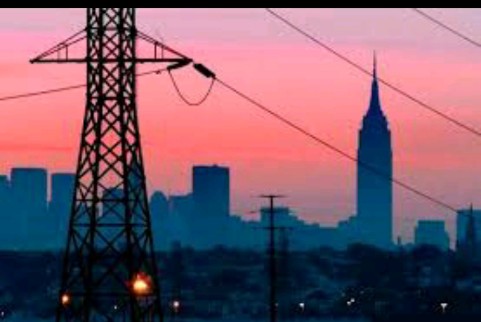By Wonderful Adegoke
On an early Tuesday morning, the warm weather prompted Nasiru to embark on an unexpected task—searching for water.
For Nasiru Abubakar, a student from the Department of Radiography at Usmanu Danfodiyo University, Sokoto, this had become a harsh reality. “The blackout has turned my daily routine upside down,” he said. “I wake up early to find water elsewhere, sacrificing precious sleep.”
Since July 31, 2024, when the blackout descended like a shroud, casting a shadow over his life, Nasiru’s new routine has been a relentless grind, draining his energy and resources.
The student life he was once accustomed to has given way to a gruelling struggle for survival. Every day, he wakes up to the harsh reality where simple tasks like charging his phone and accessing clean water have become a Herculean challenge.
“Simple tasks like charging my phone and accessing clean water have become monumental challenges. I feel anxious, irritable, and helpless,” he said in a subdued tone, his eyes welling up with tears as he contemplated how the semester was turning out.
Established in 1972, Usmanu Danfodiyo University Teaching Hospital (UDUTH) in Sokoto, Nigeria, serves as a teaching hospital for medical students at Usmanu Danfodiyo University Sokoto (UDUS), providing them with practical training and exposure to various medical cases. It also acts as a referral center for patients in Sokoto and surrounding states. The hospital, accredited by the National Postgraduate Medical College of Nigeria (NPMCN), offers postgraduate training in various specialties and includes a wide range of medical services, including primary, secondary, and tertiary care across various departments.
The serene environment houses hostels, including four blocks of male hostels, one female hostel, and the newly built hostel, popularly called ‘the new boys hostel,’ which are mainly allocated to Danfodiyo University students through an online application process.
The hospital’s confinement, once a haven of reliability, has betrayed its most enticing promise: a steady power supply.
For students residing within these walls, the sudden loss of this basic necessity has transformed a comfortable routine into a frustrating struggle, forcing them to confront harsh realities—the unforgiving glare of flashlights and the suffocating darkness of powerless nights.
Anonymous Source Reveals Cause of Power Outage
“This is unexpected,” another student confessed, speaking to Harbinger reporter on the condition of anonymity, fearing management’s retribution. His voice trembled slightly as he shared his concerns, revealing the depth of his worry. The student’s eyes darted around, ensuring no one was listening in on the conversation, before continuing in a hushed tone.
“We were shocked to see this happen at the dawn of a new semester,” he said, his gestures conveying disbelief as he struggled to comprehend the timing of the outage. He shook his head, his hands freely thrown in a futile attempt to grasp the situation.
“The last power failure occurred on June 16, 2024, during the Islamic Sallah celebration, but it was resolved within 48 hours. This time, it’s different,” he noted, his brow furrowed in concern.
He paused pensively before continuing. “The swift resolution last time had instilled a sense of hope, but now, the vagaries stare at us.
“Maybe the power supply was disconnected—who knows for how long this would last?” he questioned, his voice laden with concern.
Learning is Becoming Difficult
Muhammad Aliyu, a student from the Department of Human Medicine, lamented the detrimental effects of the power outage on the learning process.
“We are faced with the challenge of comprehending the intricacies of our lecturers’ teaching, the absence of electricity to power slide presentations—a cutting-edge pedagogical tool that facilitates visual learning through projector displays—has significantly hindered our ability to grasp complex concepts.”
Speaking further on the complexities of medical education, he said, “Without these visual tools, our understanding of critical concepts is compromised.”
Wearied by the burdensome task of carrying kegs of water upstairs in the newly built boy’s hostel, Stephen Philip from the Department of Nursing Science appeals to the management for swift intervention. The harsh realities of the hostel’s inadequacies have taken a toll on his academic pursuits.
“It’s been a hell ride, the incessant melodies of the mosquitoes make it impossible for me to attend night classes, as they completely abate my concentration. Furthermore, I almost lost my phone because I couldn’t find the card I was given after paying to have it charged.”
It Will Be Rectified Soon – Student Leader Assures
When contacted about the ongoing blackout, Abdullahi Sanusi, Chairman of the Student Union Caretaker Committee (SU-CTC), confirmed that he had lodged a complaint with the management.
“I started by reporting the issue to the hostel maintenance team, but after discovering that the problem wasn’t with them, I escalated it to the management.”
“I formally complained to the management and requested their prompt intervention to address the water and light issues on our campuses. They’re working on it, and I’m assured that it will be resolved soon,” he said.




